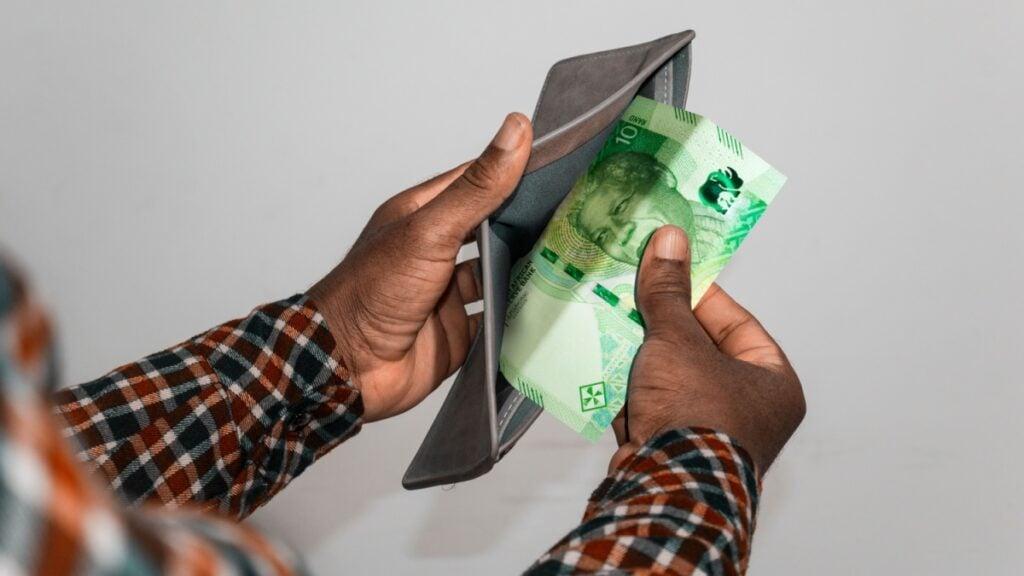Kirsten Minnaar
Africa-Press – South-Africa. South Africans are facing a difficult economic environment, with stagnating salaries, unaffordable debt, and now the rising risk of a recession.
TransUnion’s Q1 2025 Consumer Pulse Study examined key trends in household financial management, credit activity, and vehicle financing. The report highlighted consumers’ ongoing financial concerns.
Even though inflation is currently at the lower end of the Reserve Bank’s target range, 42% of respondents stated that their household income is not keeping up with inflation.
According to TransUnion, these ongoing concerns could be due to stagnating income, with 40% of consumers saying their income stayed the same in the past three months.
Worse yet, some South Africans are actually earning less than before, with 22% of respondents indicating that their income decreased during the period.
“With more than six in ten South Africans reporting no increase in their income, it’s clear to see why consumers are trying to find new ways to manage their financial commitments,” said TransUnion’s director of research and consulting, Ayesha Hatea.
This includes taking on more and different types of credit for key purchases. Even South Africans who did receive an increase may not be much better off.
Since personal income tax brackets remained unchanged once again, South Africans who received an inflation-linked increase could be pushed into a higher tax bracket. As a result, they will have less take-home pay than before.
A worrying trend is that 38% of respondents in Q1 2025 said they’ll be unable to pay at least one of their current bills and loans in full, up from 35% in Q4 2024.
Among those who said they’ll be unable to pay, 34% reported they plan on paying partial amounts they can afford but not the whole balance, while 25% said they’ll dip into their savings to help pay their current bills and loans.
A further 20% of consumers aim to borrow money from friends or family members to meet their payment commitments. Additionally, 35% of those surveyed are looking to take on temporary or gig work.
Despite many people being unable to afford their debt, many are considering taking on even more. The survey data revealed that 37% of respondents plan to apply for new or refinance existing credit within the next year.
Notably, just over half of respondents also indicated that they’ve used Buy Now, Pay Later services in the past 12 months.
Spending cuts
Although many South Africans are already facing a difficult economic environment, relief may not be as close as many hope.
Between VAT increases, the fate of the GNU becoming increasingly precarious, and the threat of Trump’s tariffs, the possibility of a recession is becoming more real by the day.
Whether this concern is justified or not, many people have started actively taking steps to prepare for a recession by cutting back on their expenses.
Among those who said they think South Africa is currently in a recession or will be in one by the end of Q1, 59% said they’re reducing spending to prepare for a possible recession.
This was followed by 58% saying that they are building up their savings and 35% indicating that they are prioritising paying down debt.
Even though many South Africans may be feeling the financial strain at the moment, this focus on managing personal finances more carefully was one of the biggest positives revealed in the report.
Hatea explained that despite the challenges posed by inflation and economic uncertainty, South Africans continue to show resilience in managing their finances.
“We are seeing notable shifts toward more purposeful financial planning, credit management and strategic spending,” she said.
Although economic pressures remain, consumers are finding ways to balance credit usage, savings, and debt repayments more effectively.
In response to these ongoing financial pressures, South African consumers are making strategic adjustments to their household budgets.
In the past three months, 52% said they have cut back on discretionary spending such as dining out, travel and entertainment.
Spending on large purchases like furniture, appliances and cars is also being reduced, with 43% saying that they are cutting back on these expenses.
This cautious approach highlights a continued emphasis on financial resilience and long-term stability.
“Our findings show that South Africans are taking a more proactive approach to managing their finances amid economic uncertainty,” said Hatea.
“While financial pressures persist, consumers are prioritising essential spending, reducing discretionary expenses, and making thoughtful financial decisions to maintain stability.”
She said providing these consumers with the right tools, education, and financial products will be crucial in supporting their financial well-being in the coming months.
Transunion said the Reserve Bank’s decision to cut the repo rate by 25 basis points to 7.5% this January, with no change in March, aims to support economic growth and ease borrowing costs.
This adjustment, coupled with improved inflation expectations, is expected to provide further relief to consumers and stimulate economic activity.
As economic conditions evolve, businesses, financial institutions, and policymakers will need to adapt to shifting behaviours and offer solutions that promote financial inclusion, long-term stability, and economic growth.
Source:
For More News And Analysis About South-Africa Follow Africa-Press






